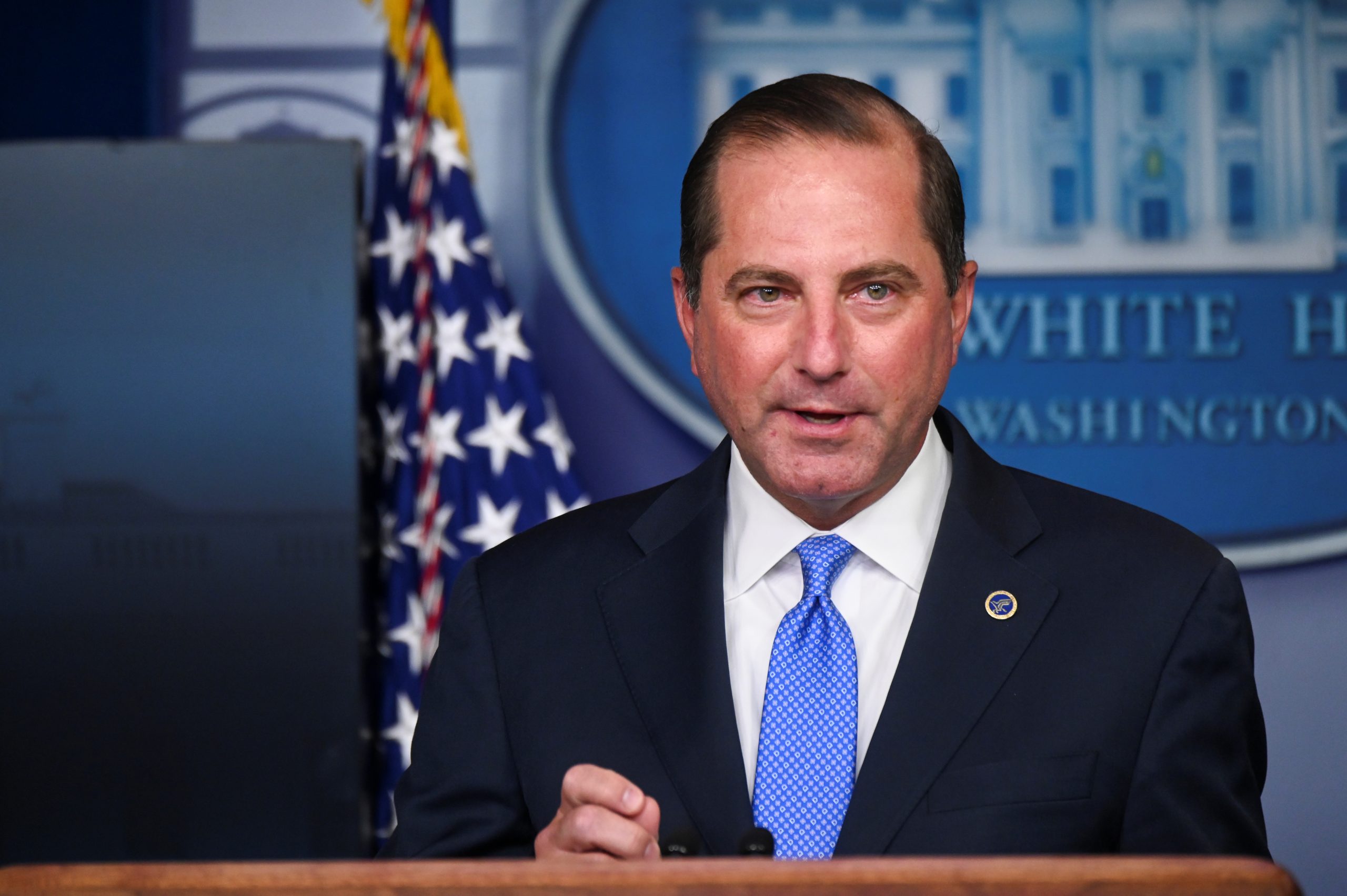After a Thanksgiving weekend when the number of people traveling through U.S. airports reached its highest since mid-March, a top government official said on Monday some Americans could begin receiving coronavirus vaccinations before Christmas.
U.S. Health Secretary Alex Azar said Pfizer Inc’s COVID-19 vaccine could be authorized and shipped within days of a Dec. 10 meeting of outside advisers to the Food and Drug Administration tasked with reviewing trial data and recommending whether it warrants approval.
A vaccine from Moderna Inc could follow a week later, he said, after the company announced on Monday it would apply for U.S. and European emergency authorization. Final trial data showed the vaccine to be 94.1% effective at preventing COVID-19, comparable with Pfizer’s results.
“So we could be seeing both of these vaccines out and getting into people’s arms before Christmas,” Azar said on CBS’ “This Morning.”
The federal government will ship the vaccines. State governors will decide how they are distributed within their states.
The United States has reported 4.2 million new COVID-19 cases so far in November and more than 36,000 coronavirus-related deaths, according to a Reuters tally. Hospitalizations are at a pandemic high and deaths the most in six months.
HOSPITALS AT BREAKING POINT
As the virus rages across the country, overwhelming hospital systems and pushing already exhausted medical staff near a breaking point, the governor of California warned that intensive care units in the state’s hospitals were on track to exceed statewide capacity by mid-December.
Speaking to reporters on Monday, Governor Gavin Newsom said he may impose tougher coronavirus restrictions over the next two days, including a possible stay-at-home order.
Nearly 93,000 Americans are currently hospitalized with COVID-19, up 11% from last week and double the number reported a month ago, according to a Reuters analysis of state and county public health reports.
Experts worry that number will keep rising as the weather gets colder and people gather indoors more often. Increases in hospitalizations tend to lag spikes in new cases by a few weeks.
“Hospital capacity is the top concern,” New York Governor Andrew Cuomo said on Monday. He ordered all elective surgeries to cease in one county and urged hospitals state-wide to again ready their plans to increase capacity by 50% if necessary or set up and staff field hospitals.
In the absence of a federal blueprint to curb the spread of the virus, more than 20 U.S. states have issued new or revamped restrictions on businesses and social life.
New Jersey Governor Phil Murphy said he was re-tightening the limit on outdoor gatherings to 25 people, effective Dec. 7, with exceptions for funerals, memorials and weddings. Religious and political activities, such as protests, are also exempt.
Murphy, who has brought back a series of COVID-19 restrictions in recent weeks, also said all indoor youth and adult sports will be put on hold from Dec. 5 through Jan. 2, 2021, also with exemptions.
“As you start to make your holiday plans, please recognize that the gathering limits are back to what they were in May and June – when we all came together and crushed the curve as much as any state in the nation,” he wrote on Twitter. “Keep gatherings as small as possible.”
U.S. officials pleaded with Americans ahead of the long Thanksgiving weekend to avoid holiday travel and limit social gatherings. But many appear to have disregarded those pleas as the Transportation Security Administration screened 1.18 million airline passengers on Sunday, the highest since mid-March.
That is still about 60% lower than the comparable day last year, when 2.88 million passengers were screened, the highest ever recorded by the agency.
“There almost certainly is going to be an uptick (of infections) because of what has happened with the travel,” Dr. Anthony Fauci, the top U.S. infectious diseases experts, told ABC’s “This Week” program on Sunday, warning of a surge on top of a surge.
(Reporting by Doina Chiacu in Washington and Peter Szekely in New York; Additional reporting by David Shepardson in Washington, Maria Caspani, Jonathan Allen and Barbara Goldberg in New York; Writing by Maria Caspani; Editing by Bill Berkrot)

























 Continue with Google
Continue with Google